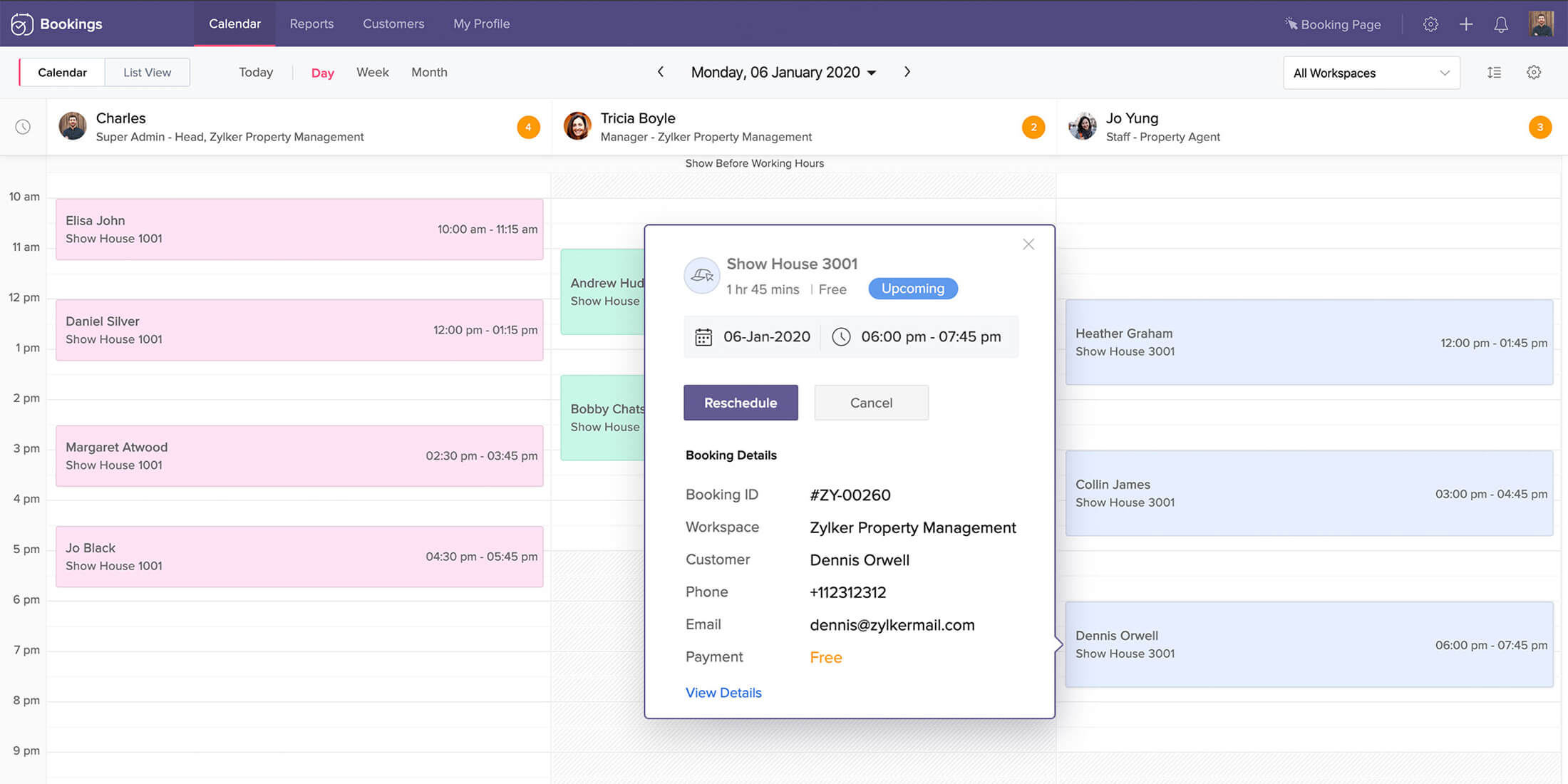In the realm of customer relationship management (CRM), appointment scheduling takes center stage, revolutionizing the way businesses manage their appointments. From healthcare to education, CRM appointment scheduling tools empower organizations to streamline their scheduling processes, enhance efficiency, and elevate customer satisfaction.
By seamlessly integrating with CRM modules, these tools offer a comprehensive suite of features that automate appointment scheduling, send reminders, facilitate follow-ups, and provide real-time visibility into customer interactions.
Best Practices for CRM Appointment Scheduling

Establishing a set of best practices for CRM appointment scheduling is crucial to optimize the process and enhance productivity. These guidelines should cover various aspects, from setting up appointments and sending reminders to following up and managing cancellations.
Scheduling Appointments
- Automate scheduling:Use CRM tools that allow customers to self-schedule appointments, reducing manual effort and saving time.
- Offer multiple scheduling options:Provide customers with different ways to schedule appointments, such as online booking, phone calls, or email.
- Set clear availability:Define your availability in the CRM system to avoid double-booking and ensure efficient scheduling.
Sending Reminders
- Send automated reminders:Set up automatic reminders to be sent to customers via email or SMS prior to their appointments.
- Personalize reminders:Include customer-specific details and a clear call-to-action in the reminders.
- Offer multiple reminder options:Allow customers to choose their preferred method of receiving reminders, such as email, text, or phone call.
Following Up, Crm appointment scheduling
- Follow up promptly after appointments:Send a thank-you email or make a phone call to follow up with customers and gather feedback.
- Capture notes and action items:Document key points from the appointment in the CRM system for future reference and follow-up.
- Schedule follow-up appointments:If necessary, schedule follow-up appointments to continue the conversation or provide additional support.
Managing Cancellations
- Allow easy cancellation:Provide customers with clear instructions on how to cancel appointments, such as through a self-service portal or by contacting the support team.
- Set cancellation policies:Establish clear policies regarding cancellations, including notice periods and any associated fees.
- Reschedule or rebook:If an appointment is canceled, offer to reschedule or rebook at a more convenient time.
Examples of Successful Appointment Scheduling Strategies
- Tiered scheduling:Use different scheduling processes for different customer segments, such as VIP customers or high-value prospects.
- Appointment stacking:Schedule multiple appointments back-to-back to optimize time and minimize gaps in the schedule.
- Centralized scheduling:Use a central scheduling system to manage appointments across multiple teams or locations.
Future Trends in CRM Appointment Scheduling

The future of CRM appointment scheduling is bright, with emerging trends poised to revolutionize the way businesses manage their appointments.
Advancements in technology, such as artificial intelligence (AI) and automation, are driving these trends, promising to streamline the scheduling process, enhance customer experiences, and optimize resource allocation.
AI-Powered Scheduling
- AI algorithms can analyze customer preferences, availability, and past scheduling history to automatically suggest optimal appointment times.
- Natural language processing (NLP) enables customers to schedule appointments using conversational language, simplifying the process.
Automated Appointment Management
- Automated systems can send appointment reminders, confirmations, and rescheduling notifications, reducing the need for manual intervention.
- Integration with other business systems, such as calendars and CRM platforms, ensures seamless data flow and eliminates double-booking.
Data-Driven Insights
- CRM systems can collect and analyze data on appointment scheduling patterns, customer preferences, and resource utilization.
- This data can be used to identify areas for improvement, optimize scheduling strategies, and make informed decisions.
Personalized Customer Experiences
- AI-powered chatbots can provide personalized assistance to customers, answering questions and scheduling appointments.
- Customers can access self-service portals to view their appointments, reschedule, or cancel, empowering them to manage their schedules conveniently.
Integration with Other Technologies
- CRM appointment scheduling systems are increasingly integrating with video conferencing platforms, allowing for virtual appointments.
- Integration with mobile devices enables customers to schedule and manage appointments on the go, enhancing accessibility.
These trends are shaping the future of CRM appointment scheduling, promising to enhance efficiency, improve customer experiences, and optimize resource allocation. As technology continues to evolve, we can expect even more innovative and transformative solutions to emerge.
Wrap-Up

As we look ahead, the future of CRM appointment scheduling promises exciting advancements driven by artificial intelligence (AI) and automation. These innovations will further enhance scheduling efficiency, optimize resource allocation, and provide personalized experiences for customers. By embracing these cutting-edge technologies, businesses can stay ahead of the curve and deliver exceptional customer service.
Query Resolution
What are the key benefits of using CRM appointment scheduling?
CRM appointment scheduling streamlines scheduling processes, reduces no-shows, enhances customer satisfaction, and provides valuable insights into customer behavior.
How do CRM appointment scheduling tools integrate with other CRM modules?
CRM appointment scheduling tools seamlessly integrate with modules such as customer profiles, lead management, and sales pipelines, providing a holistic view of customer interactions.
What are some best practices for effective CRM appointment scheduling?
Best practices include setting clear appointment policies, sending timely reminders, following up promptly, and managing cancellations efficiently.
